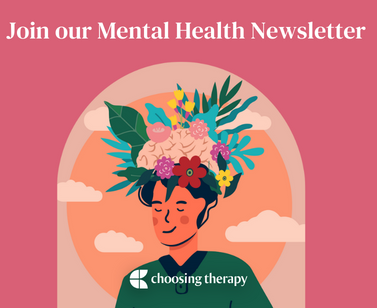Muscle dysmorphia is a form of body dysmorphic disorder that takes place when the preoccupation on one’s physical appearance centers on muscle definition. In this type of disorder, the person’s perspective is warped to the degree that they see major flaws that are, in reality, either minor or completely imagined.
What Is Muscle Dysmorphia?
Muscle dysmorphia, sometimes called “bigorexia” in reference to the similarities between it and anorexia, is a subset of body dysmorphic disorder (BDD). The person suffering from muscle dysmorphia is obsessed with becoming bigger and more muscular. Because of this, it is commonly associated with body builders and generally affects males more than females.
A person with muscle dysmorphia will exercise almost constantly or pathologically. They will perceive themselves as small and weak despite evidence to the contrary, and work incessantly to become more muscular. While exercise is a healthy activity and great for mental health, excessive exercise can cause physical damage.
10 Symptoms of Muscle Dysmorphia
While the main characteristic of muscle dysmorphia is that the person suffering from it never believes they are muscular enough, the underlying factor is their poor body image.
Here are ten symptoms of muscle dysmorphia:1
- Avoiding social situations to spend more time exercising
- Missing work because of prioritizing exercising
- Feeling embarrassed with their appearance
- Having an overly strict, regimented diet
- Lifting weights to excess or even injury
- Feeling of sadness or intense stress about their muscle makeup
- Excessive anger
- Sensitivity with topic of their body
- Use of anabolic steroids
- Constantly talking about and obsessing over their muscles
7 Comorbidities of Muscle Dysmorphia
Because of its focus on the body and body image, people with muscle dysmorphia can have other disorders that impact the severity and manifestation of symptoms, including eating disorders, low self-esteem, and steroid complications.
Here are seven disorders and traits that commonly occur alongside muscle dysmorphia:
1. Eating Disorders
Several eating disorders are associated with muscle dysmorphia, including orthorexia, anorexia, and bulimia. The latter two are more prevalent in women.
2. Perfectionism
Perfectionism is mostly seen in the regimented behaviors typical of someone with muscle dysmorphia. An example of this would be a highly regimented diet and exercise routine that cannot be deviated from, and if deviation occurs they may have to make up for it by doing extra exercise sessions or limiting food.
3. Low Self-esteem
Low self-esteem is a trait often seen in someone with muscle dysmorphia. It’s impacted by unrealistic expectations of their own body, as well as a distorted view of their physical appearance that accentuates minor or imagined imperfections.
4. Physical Injuries
People with muscle dysmorphia often push themselves to extremes when working out. Rhabdomyolysis, heart issues, and various skeletal muscular injuries can result from these extreme workouts. The body has limits, and people with muscular dysmorphia will regularly push those limits trying to achieve unrealistic goals. This is further complicated by any illicit drug use or reliance on anabolic steroids.2
5. Steroid Complications
Anabolic steroid use comes with a variety of negative side effects, including reproductive issues, cardiovascular complications, severe acne, decreased testosterone levels, enlarged breast tissue, and a higher mortality rate.3 The behavioral side effects of anabolic steroid use can also be detrimental to both the individual and their relationships, sometimes resulting in rage and a tendency toward violence.4
6. Substance Abuse
Research has found increased rates of substance use disorder in males with muscle dysmorphia.5
7. Mood Disorders
In general, dysmorphic disorder is associated with high rates of comorbid mood and anxiety disorders, including social anxiety disorder and obsessive compulsive disorder (OCD).5 This aligns with the obsessive nature of the behavioral components of muscle dysmorphia, as well as the negative impact of self image on the person’s mood.
Treatment For Muscle Dysmorphia
The most effective treatment for muscle dysmorphia is a combination of psychotherapy and pharmacological treatment. Treatment will often mirror that of OCD, since much of the same mechanisms are at work. That treatment approach typically consists of cognitive behavioral therapy (CBT). Administration of selective serotonin reuptake inhibitors (SSRIs) can sometimes be considered for comorbid anxiety or mood disorders. Medications, however, do not address the underlying self-esteem or personality issues that drive muscle dysmorphia.5 To start finding a therapist that specializes in CBT, you can search on an online therapist directory to find the right fit.
If anabolic steroid use is present, treatment may also include endocrine treatment to mitigate the damage to the body. This treatment would be to address things like baldness, enlarged breasts, testicular damage, and prostate issues. Unfortunately, some of the more major organ issues, such as heart damage, can be irreversible.6 Non-medical anabolic steroid use is dangerous and can have severe and life-threatening side effects.
How to Help Someone With Muscle Dysmorphia
If you have a friend, family member, or partner with muscle dysmorphia, one of the best ways to support them is to encourage them to receive or continue treatment. This is a psychological condition with real biological and social consequences. Point them toward credible resources.
Furthermore, consider the social impacts of this condition. They may not want their body on display or to be seen in public. Don’t pressure them to attend social events or give them a hard time about their body or unwillingness to do things that put their body on display. They usually have an internal dialogue going on that gives them a hard enough time as is. Just be supportive and willing to hear them out.
Final Thoughts On Bigorexia
Muscle dysmorphia, or bigorexia, is hard to deal with, but there are ways to get help and move forward. There is real treatment out there, and you can have hope that there are ways to see yourself as the wonderful person you actually are.
Additional Resources
To help our readers take the next step in their mental health journey, Choosing Therapy has partnered with leaders in mental health and wellness. Choosing Therapy is compensated for marketing by the companies included below.
Online Therapy
BetterHelp Get support and guidance from a licensed therapist. BetterHelp has over 20,000 therapists, who provide convenient and affordable online therapy. Complete a brief questionnaire and get matched with the right therapist for you. Get Started
Psychiatry, with you in mind
Talkiatry Our Psychiatrists Can Diagnose Your Condition, Prescribe Medication, And Monitor Your Progress. Most psychiatry visits cost patients $30 or less* Free Assessment
Drinking Moderation
Sunnyside Want to drink less? Sunnyside helps you ease into mindful drinking at your own pace. Think lifestyle change, not a fad diet. Develop new daily routines, so you maintain your new habits for life. Take a 3 Minute Quiz
Relationship Help
OurRelationship (Free Couples Course) OurRelationship has been proven to help couples improve communication, intimacy, and trust. 94% would recommend it to a friend. Get Started
Mental Health Support Group App
Circles Anytime, anonymous, and free. Never feel alone during life’s greatest challenges. Drop-in to live conversations and share thoughts, ask questions, or learn from others on the same journey. Join Circles Now
Free Prescription Discount Card
Optum Perks Save up to 80% on most prescriptions. Optum Perks provides discounts at over 64,000 pharmacies nationwide. No memberships or costs to you, ever. It’s really that easy. Get your card and start saving. Get the discount card!
*Includes copayment, deductible, coinsurance, and $0 Visits. Excludes no shows.
Online Anxiety Test A few questions from Talkiatry can help you understand your symptoms and give you a recommendation for what to do next. How Does ERP Help With Intrusive Thoughts? Obsessive compulsive disorder (OCD) is a psychiatric condition marked by the presence of obsessive thoughts, images, doubts, or urges, followed by compulsive behaviors or acts aimed at easing the distress caused by the obsession. While the content of the obsessions can take many forms, they are always repetitive, persistent, involuntary, and intrusive, and they often result in a great deal of anxiety for the person experiencing them.








